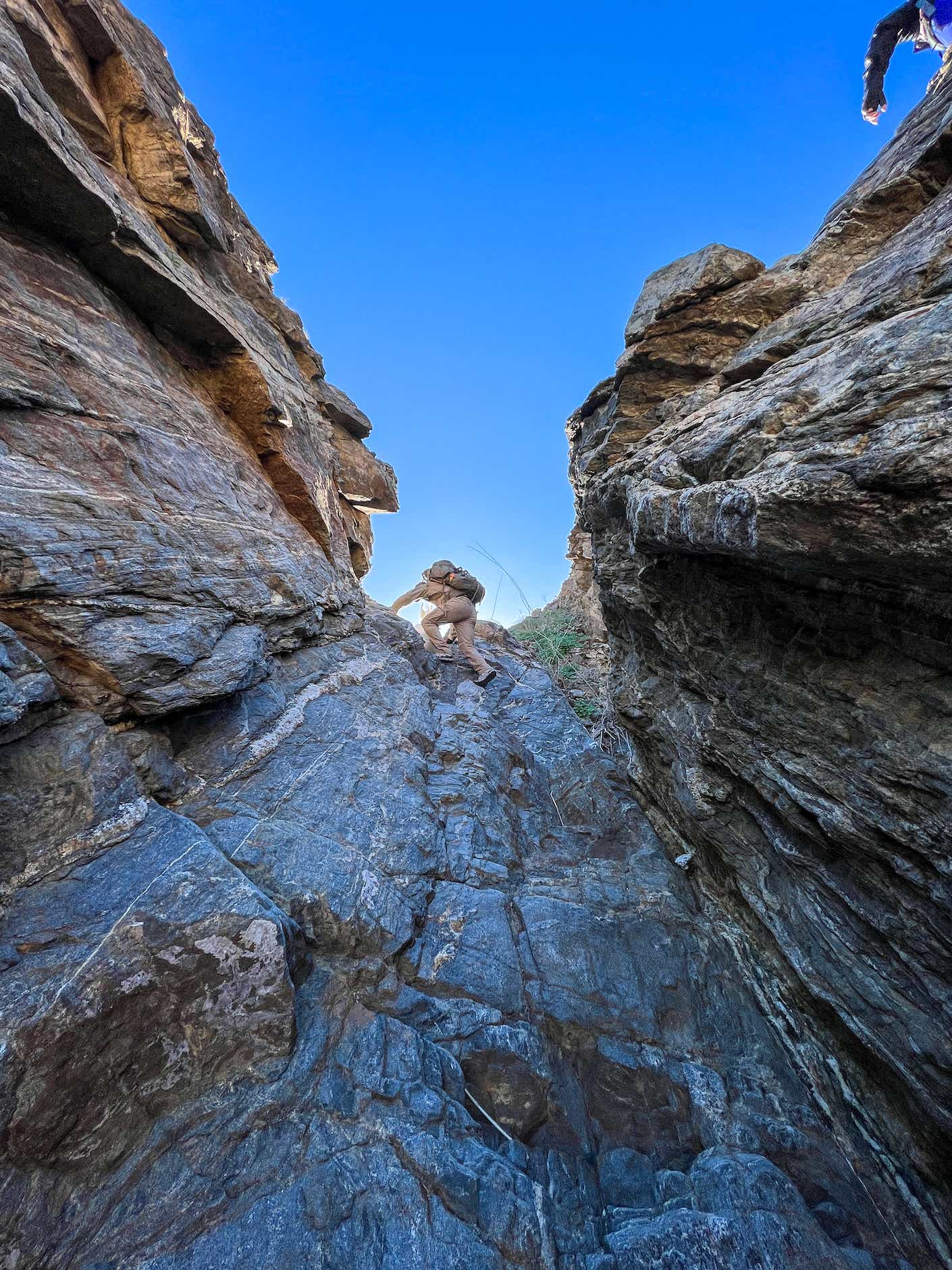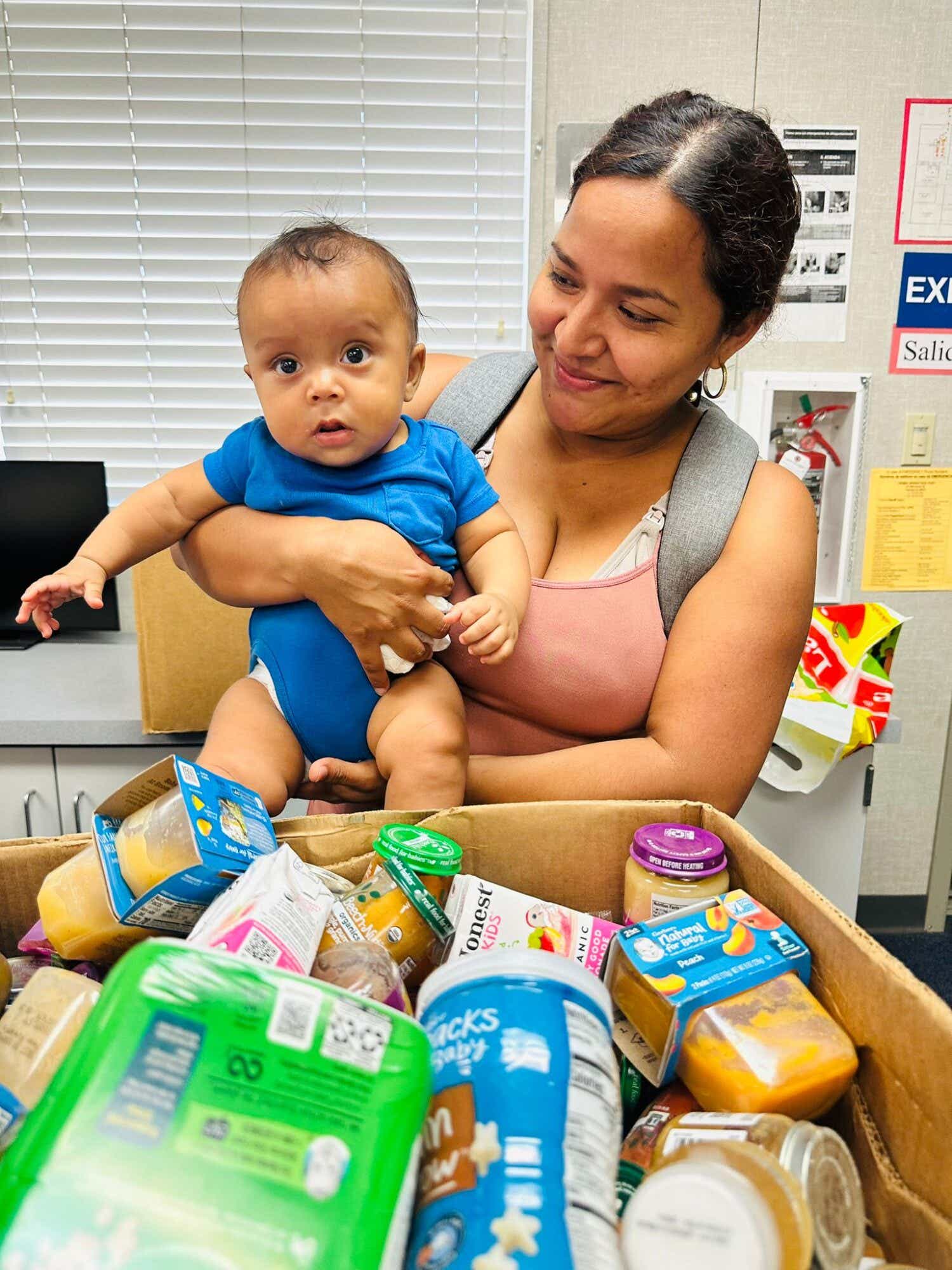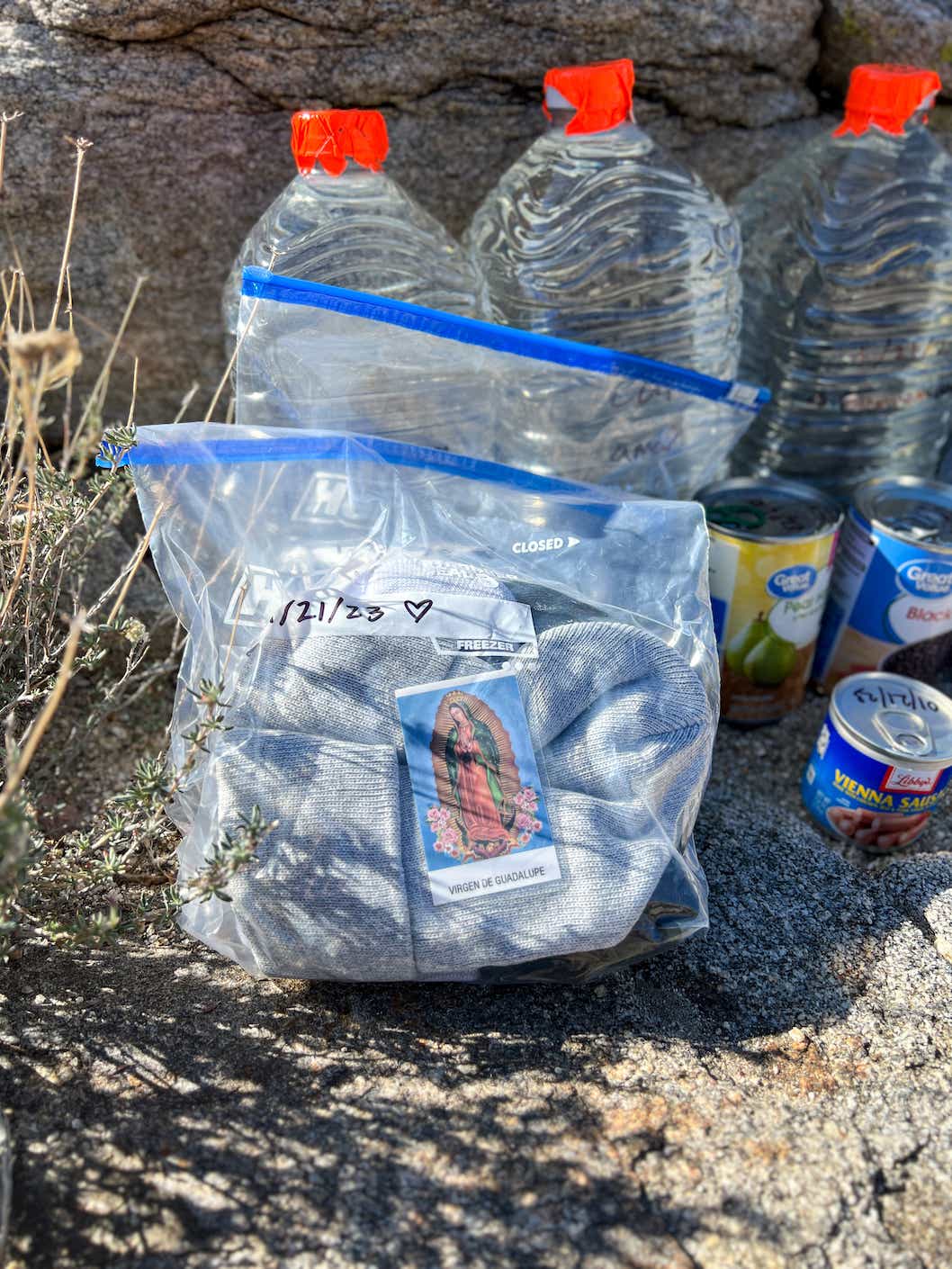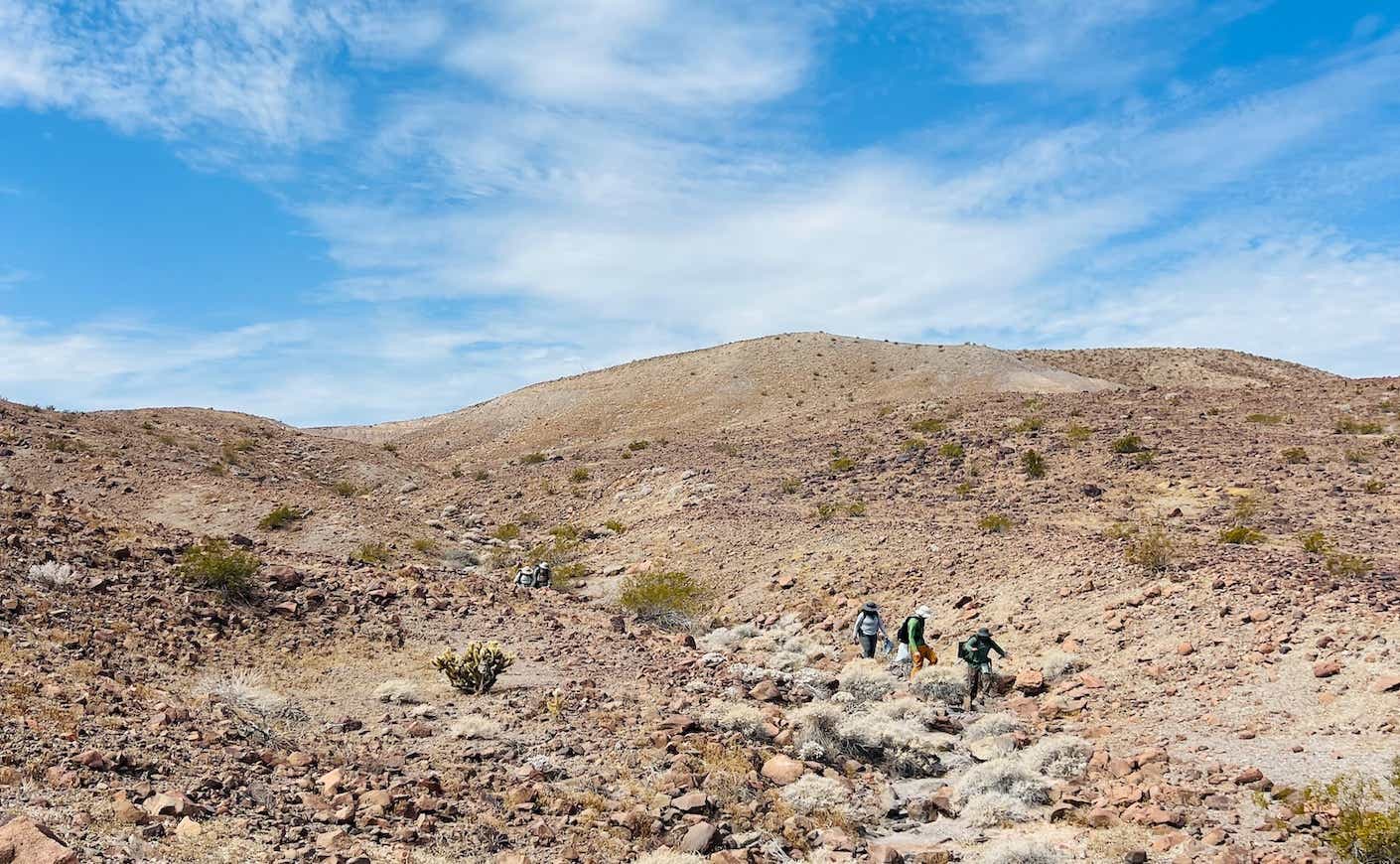Can you remember a time when the Mexican-American border wasn’t a mainstay on the nightly news? For decades, you’ve turned on the television only to hear politicians bickering back and forth about the wall. Just this past year, you read headline-grabbing stories about migrants being bussed to random areas of the country as a stunt engineered by Florida Governor Ron DeSantis. But in the midst of weighty discourse about how the United States should navigate illegal and legal immigration, it can be easy to lose sight of a very real crisis: Groups of human beings are in an extremely precarious struggle to survive. But luckily, one organization working on the Mexican border is focusing on that issue — against intense odds.
Border Kindness is a nonprofit organization operating out of Mexicali, Mexico, and the Imperial Valley of California. Working on both sides of the border in a hot climate known for extreme temperatures, Border Kindness aids refugees crossing the desert by strategically depositing much-needed water bottles in the harsh wilderness. Once settled in the states, the nonprofit assists migrants through a growing children’s empowerment center, migrant assistance programs, and day laborer outreach efforts.
We spoke to the team behind Border Kindness’ water drops and migrant assistance programs about how they support the entire journey from the life-threatening trek through the desert to the unique challenges of adjusting to life in the United States.

Katie Couric Media: How did Border Kindness start?
Kelly Overton: I founded Border Kindness in November of 2018. In hindsight, Donald Trump inspired me to do something. I came to Mexicali because it appeared to be completely underserved. There were organizations in Tijuana and in Juarez, but Mexicali didn’t have a lot of assistance. I think it’s because of the weather and the isolated geographic area.
Jacqueline Arellano: My partner and I have been organizing hikes into the desert to leave supplies of water and food for those crossing since 2016. I’m from the Imperial Valley/Mexicali region, and as the daughter of immigrants, the area and the cause are extremely close to my heart. I heard about Border Kindness from someone who knew that I was well acquainted with the struggles of the rural border community. I really felt a connection with the values of the organization.
Who are the migrants at the border? Where are these migrants coming from?
Jacqueline Arellano: Traditionally, folks that were coming through the Imperial Valley Desert were men of working age, often of Mexican descent. We started seeing a shift with the caravans in the mid-2010s. From 2016 to 2018, people began coming from the northern triangle of Central American countries [Guatemala, Honduras, and El Salvador]. We started seeing more children, women, and full families. Not people crossing for economic opportunity, which was classically the case, but people who were fleeing. Now, there are people you might consider refugees — and they’re asylum-seeking. And now the demographic is a lot more diverse.
Because of the way that we hike the supplies out, we don’t directly interact with the folks that we’re serving. But we find items that they leave behind. More recently, we’ve been seeing things from Turkey, Russia, and Brazil. We find things like receipts, flight tickets, and children’s homework in languages that we’d never seen before.
Recently, there was a situation in a small rural border town here in California where about 1800 migrants were gathered for about a week with no resources. They were waiting to be processed by border patrol and they were left out in the sun for about a week. Local organizations, including ours, responded with food, water, and sunscreen. Those migrants were from all over the world. Usually, I’m able to get by speaking Spanish. But this time, I had never seen so much diversity.

How do you help people who are very intentionally trying not to be seen or found?
Jacqueline Arellano: Initially, we started leaving supplies out and going back to check on them to see whether they’d been consumed or not. But that’s not something that we can rely on. Migration’s always changing; as the militarization and the surveillance of the border continue to increase, people are being pushed into more remote areas of the desert. The border patrol funnels people into more difficult terrain in order to deter them. That’s part of the U.S. government’s prevention through deterrence policies that were implemented in the 90s.
In the Imperial Valley when the wall construction was being extended, we had to shift gears. Surveillance moves people into really rugged terrain. The only way that we’re able to navigate this is to be really consistent. We can’t rely on pattern recognition or data because humans migrate in really unpredictable patterns. They’re doing so in an effort to not be detected.
Something that is like four air miles from the Mexico border to the nearest road easily turns into a 40-mile journey for people because they’re having to circumnavigate border patrol and checkpoints. That’s why we have thousands dead in the desert.

Have increased temperatures affected your work?
Jacqueline Arellano: Every summer we get this dread knowing that people will die. But we’re human beings, too. Regardless of how much preparation, training, and how many supplies we have for ourselves, we’re still limited in how much we’re able to hike in 120-degree heat. We have to wake up at 2 a.m. and start at 4 or 5 a.m. to make it out to these areas before the sun is the hottest.
It’s just hard to keep the area as stocked as it needs to be in the summer because so many people are coming through. Even if the border patrol wants to use things like terrain, heat, and extreme danger to deter people, it doesn’t work. People can’t be deterred when they want to survive. Travel increases in hot weather because the border patrol doesn’t survey as much in the summer. You’d think people would wait until it’s temperate to make their way through. But if you have no other option but to risk your life to try to survive, you’re going to do it.
You’re also doing a lot of work kind of supporting families doing agricultural work in the Imperial Valley. How do you get in touch with these families and how do you help them?
Karla Alba: We first got in touch with families through Migrant and Seasonal Head Start. At the federal level, MSHS provides preschool and other educational services to the children [ages birth to five] of low-income families who work in agriculture. [Border Kindness partners with five Migrant Head Start programs in Imperial County.]
We have events where we provide legal advice to these families. We give them groceries, free haircuts, donated formula, diapers, and clothing. We’re also looking for a way to be able to give these families access to free medical care. Seventy percent of the families are undocumented, so they have issues with their legal situation in the United States.
I visited the fields and many people were going to work sick out of fear of losing their jobs. Many of their employers abuse their [workers] rights, which is one of the reasons we want to approach them with legal advice. We want them to know — even though they’re in that situation — that they still have rights.

Jacqueline Arellano: We follow the different stages that people go through when it comes to migration in our community. There are day labor sites all over San Diego County; we provide undocumented workers at these sites with work clothing, gloves, sun protection, and hats. A lot of folks are unhoused when they’re presenting at day labor sites; if they’ve recently arrived, they’re living literally in the canyons of rural San Diego County. So we’ve made it a point to emphasize our outreach in those rural areas that don’t get as much service.
There aren’t any resources on the other side of the border to address this huge crisis. The migrant community in the Imperial Valley doesn’t have resources to rely on because even documented citizens on the rural border don’t have many resources. It’s a lose-lose situation. And lose-lose situations don’t get much attention.









